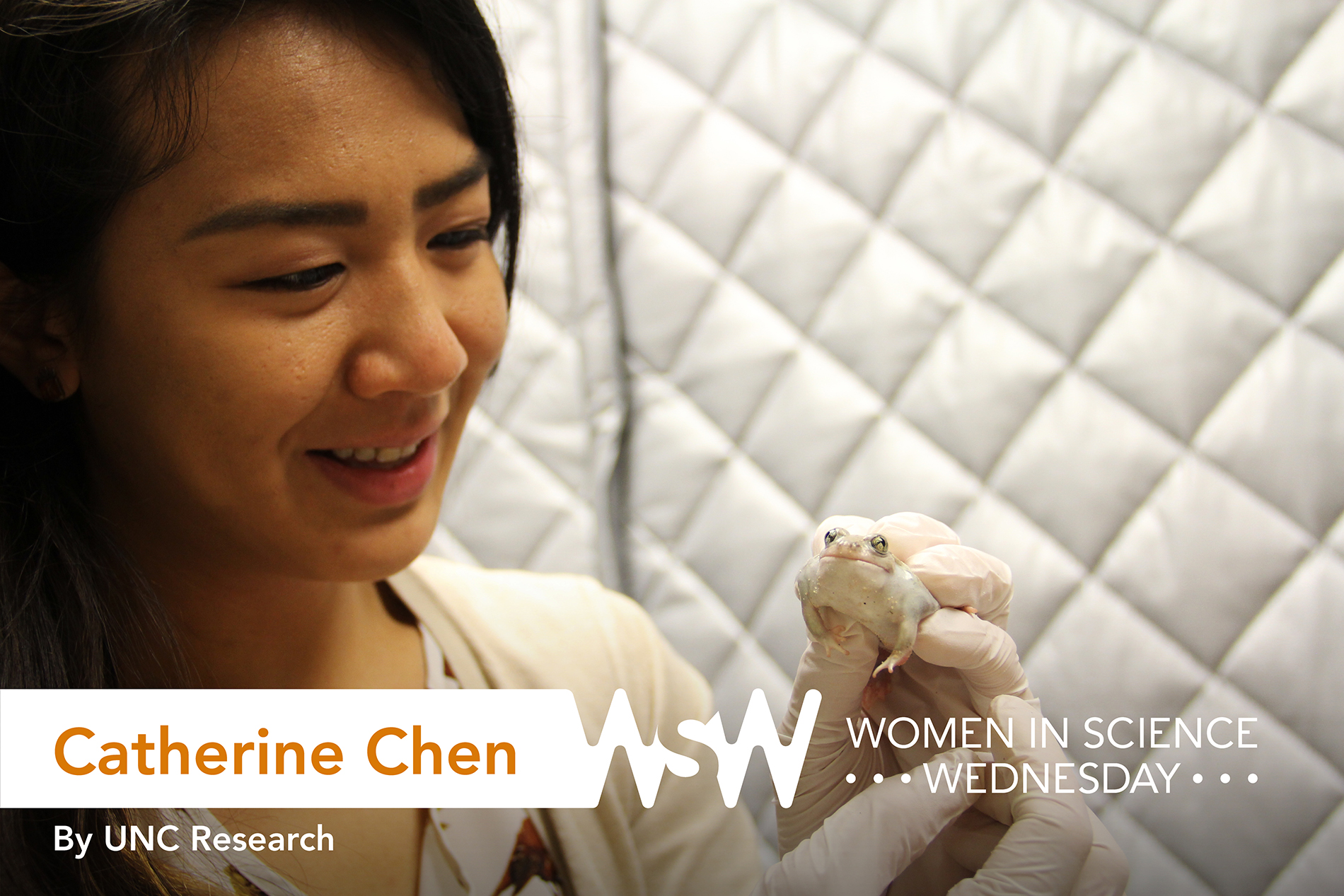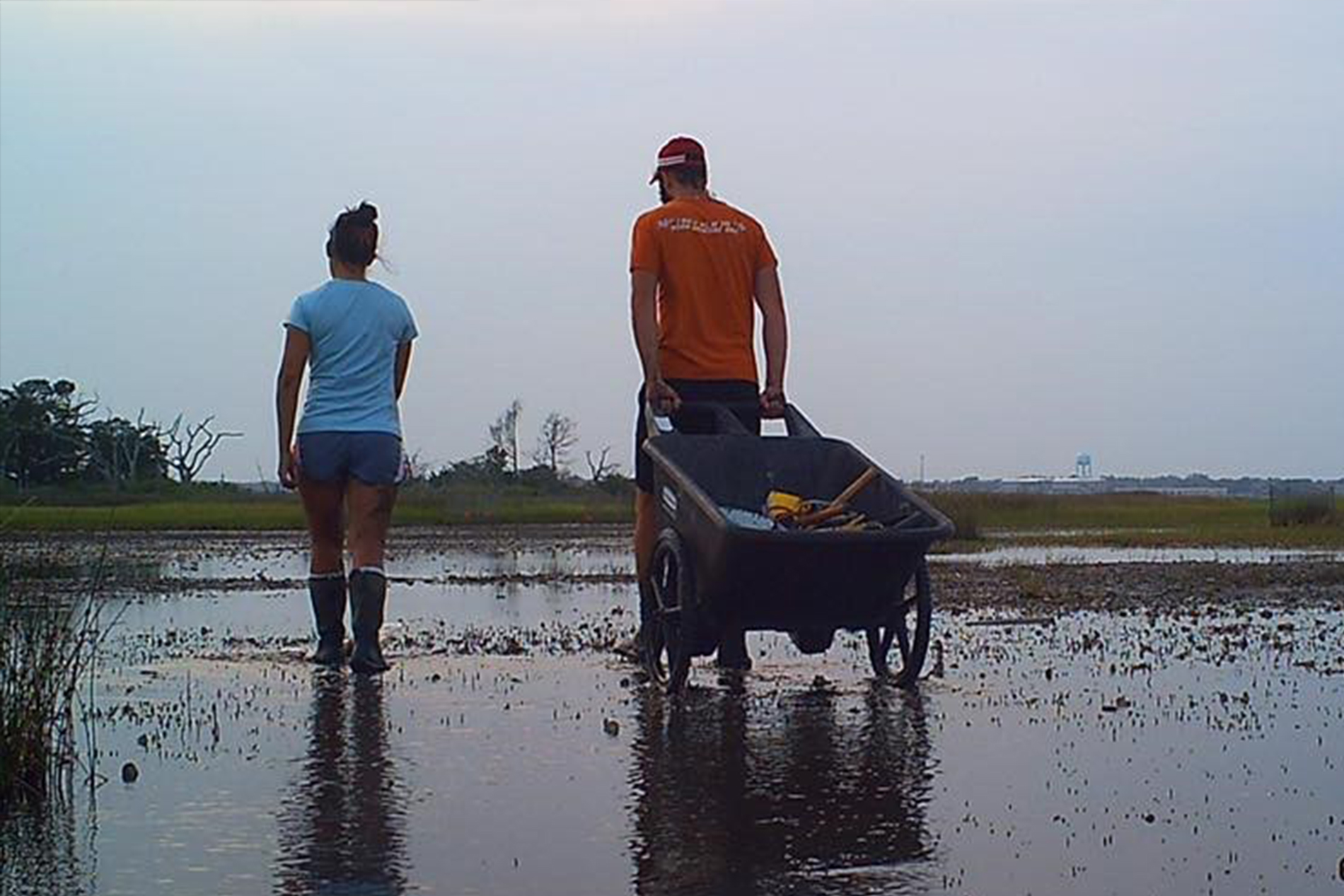When you were a child, what was your response to this question: “What do you want to be when you grow up?”
Describe your research in five words.
“Toads are picky about sex.”
When I was a kid, I was obsessed with this guidebook on dolphins, whales, and porpoises — so I wanted to be environmental educator! Preferably one working with marine life.
Share the pivotal moment in your life that helped you choose your field of study.
On an elementary school field trip to the American Museum of Natural History, I got to see a variety of incredible displays — the one of the iconic blue whale blew my mind. Realizing how much amazing biodiversity there is in the world catalyzed my lifelong fascination with it.
Tell us about a time you encountered a tricky problem. How did you handle it and what did you learn from it?
One summer in Georgia, I set up cages in a salt marsh to collect snails for an undergraduate research project. The day after all the cages were finally set up, I checked them and found that most of the snails had escaped because the wire mesh of the cage hadn’t been small enough — disaster! I’d tested it beforehand by trying to fit the snails through in the lab, but hadn’t counted on quite how tenacious the snails would be. I ended up covering the insides of the cages with some even finer mesh and grabbing more snails to put in — tedious, yes, but so much better than remaking the cages. Lessons learned: Think creatively and broadly to fix your mistakes. Also, snails are smarter than you think.
What are your passions outside of science?
I really like making food. My boyfriend got me a stand mixer over the holidays, so I’m currently even more excited about cooking than usual (Hand-pulled noodles! Taiwanese meatballs! Mmm.) To counteract all the eating that goes along with the cooking, I like hiking — the coast is my favorite because I love the water — and have recently taken up weight-lifting. Doing things that are completely unrelated to science helps clear my mind and motivates me to get back into the lab.



